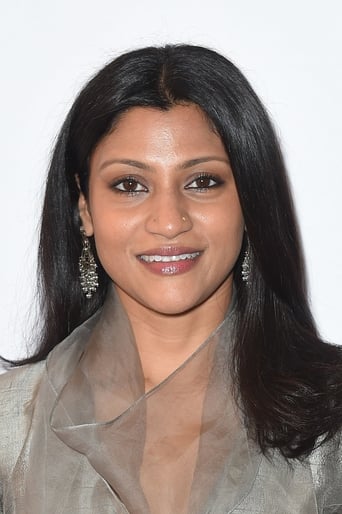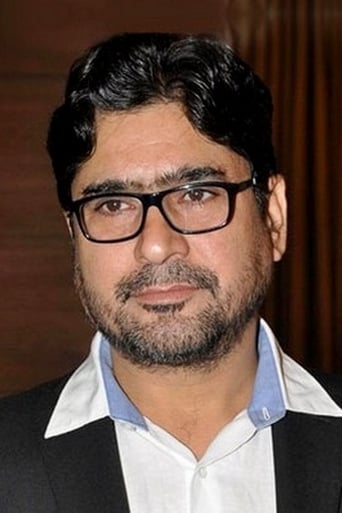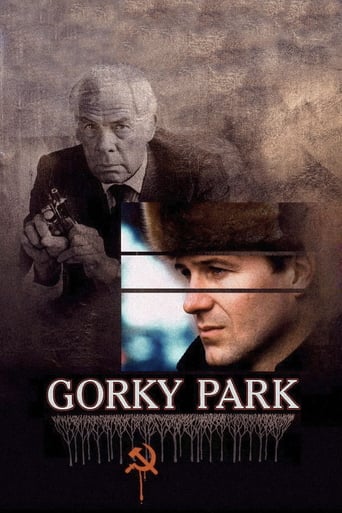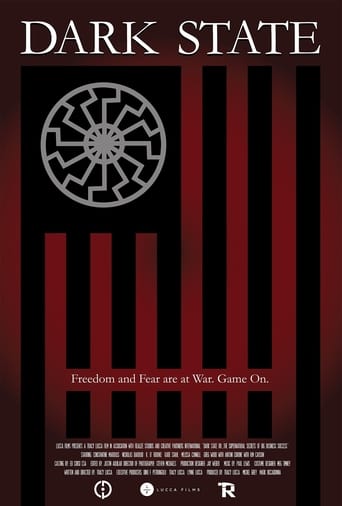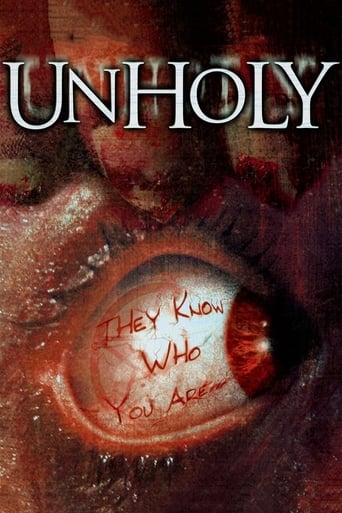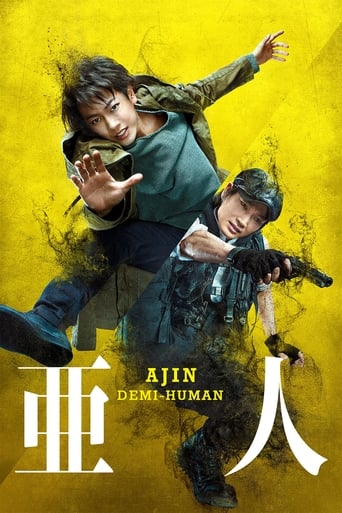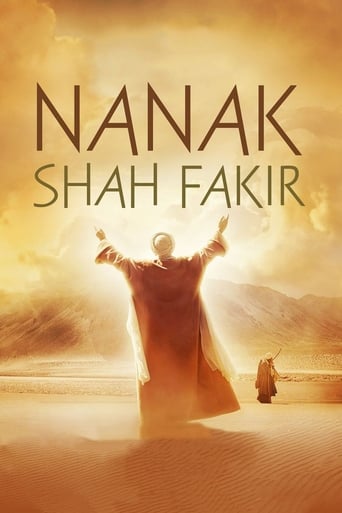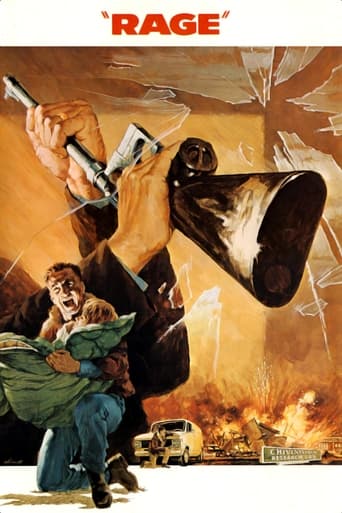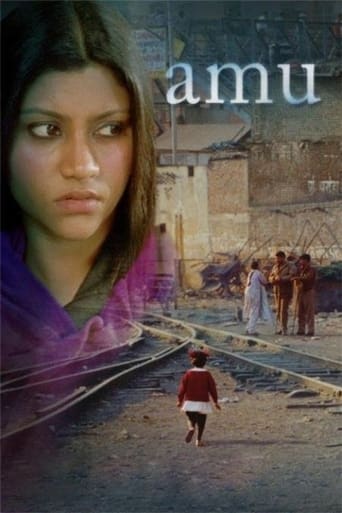

Amu (2005)
Amu is the story of Kaju, a twenty-one-year-old Indian American woman who returns to India to visit her family and discover the place where she was born. The film takes a dark turn as Kaju stumbles against secrets and lies from her past. A horrifying genocide that took place twenty years ago turns out to hold the key to her mysterious origins.
Watch Trailer
Cast


Similar titles
Reviews
Amu is the story of a 21-year old American-Indian girl who on her staycation in India uncovers unsettling facts about her past - her roots, her identity, where she belonged. This fiction tale is woven around the true events of the 1984 Sikh genocide. A gripping narrative makes this film a compelling watch. The one hour and twenty minutes had my undivided attention. And the performances only added to it. Konkana Sen leaves me spellbound with every film. She's no different here. She plays any part with so much ease I forget I'm watching a film. Brinda Karat, our firebrand political leader and social activist, plays Konkana's mother and she it does adequately.The film explores and questions the happenings of the '84 riots, stories of which I've heard in my childhood days. Reason why I could so relate to the film. (Stories of sikhs being pulled out of houses and burnt alive, of hindus helping hide away sikhs in their houses, of wailing women and children, of widowed women being rehabilitated in what's now called the "Widow Colony"). A documentary Widow Colony was also made on this subject in 2005. It was screened at various film festivals abroad.The censor board created much noise at the time of Amu's theatrical release giving it an A-certificate and cutting out a few scenes/dialogues for reasons obvious (that you'll find out in the film and here but the film-makers gave a raw, unpeppered account of all that had happened in their DVD version in 2008 (which was not allowed to be shown on TV).Amu premiered at the Berlin and Toronto Film Festivals in 2005. Since then, it has won numerous awards and accolades including 2 National Film Awards in the Best Feature Film and Best Director (English language) categories.Pat on the back to director Shonali Bose and producer-cum-husband Bedabrata Pain (who directed Chittagong) for showing the audacity to make a film without compromising on the facts. The film steers clear of clichés and only focuses on telling the story. And it does that brilliantly! Source: http://www.balconyrow.com/2013/07/amu-2005-movie-review.html
Well I haven't yet watched this movie but I would surely like to watch it. I would like to appreciate director for such a bold and courageous effort. And the bad thing is that masses would watch it as just another work of art or ....... sadly in the so called largest democracy of the world there is no democracy at all. minorities in Punjab, eastern states, Kashmir have suffered thru successive Indian governments and continue to do so. My heart and feelings are with all those unfortunate but brave people who stood out for their self-respect and civil rights. SHAME on fascist people who still thrive freely !!! It is a blot on the image of India until justice is done to those innocent people
I had the pleasure of seeing "Amu" during the launch of the first annual Asian American Film Festival in Pittsburgh this past weekend. Perhaps a fitting testament to the reason festivals such as this need to exist in the first place, the film deals with a subject I hadn't even known existed beforehand: the Sikh massacres in India over a three-day period in 1984, and the complicity of a corrupt government in facilitating and masking the events.Director Shonali Bose, one of the producers (her husband, Atiya, I believe) and star Konkona Sen Sharma were all on hand to answer questions from the audience, and the political nature of the film led to a spirited discussion (and occasional debate) that, unfortunately, could not be condensed into the time allowed. Thus, given the film's stature and the importance of its subject matter, it's a shame to point out the shortcomings of its actual artistry.As another commenter has mentioned, the film is generally well-directed but is not perfect. I agree that certain elements of its narrative (particularly the pacing, as well as a few contrived interpersonal moments) felt tacked-on or inauthentic, and were perhaps invented to couch the story in a modern-day milieu that could appeal to audiences before "surprising" them with the political content of the film in its second half, as the mystery of the main character's history is unraveled.It's entirely possible the film would have worked better without the "mystery" angle, especially since it seems to come from left field midway through the film and then becomes all-pervasive, in direct contrast to the semi-documentary "romantic comedy travelogue" feel of the first half. What struck me most awkwardly was the disjointed nature of the "suspense" surrounding the eventual divulging of repressed information. The purposely vague ways in which Kaju's family avoids discussion of her past or, when confronted with conflicting information, seek to simply change the subject or stare pensively at the floor felt falsely melodramatic.But all of my criticisms become quibbles when faced with the undeniable power of the film's few flashback scenes, which depict certain controversial events in an unflinching light. In those moments, Bose finds her true voice, and the voice of the victims in these unjustified atrocities.Incidentally, one area the films succeeds in artistically is the casting of Konkona Sen Sharma as Kaju. Her accent and body language were flawlessly American on screen, as they should have been (Kaju is an Indian girl raised in America), but Bose explained after the film that Konkona has lived her whole life in India and was only given two weeks to immerse herself in Los Angeles's culture to prepare for the role of Kaju. Those who see the film will certainly agree that she succeeded.
I was initially hesitant about watching Amu because movies with a backdrop of communal riots don't sit well with me. However, I had heard good things about the film and for that reason I also did not want to miss it.Amu is a film about a young, adopted girl on a quest to find her birth parents. Kaju, played by Konkona Sen Sharma, lives in LA and is visiting India to be with her mother's family. During her visit she is also trying to get more information about her real parents, who she knows nothing about. The journey to find out her identity has her come across the characters played by Yashpal Sharma and Ankur Khanna, who help take her to each lead and finally to a point where she discovers her history. A history that is tied to the 1984 communal riots. Amu is also about Kaju's relationship with her mother who is trying to keep the truth from her.Shonali Bose does a fabulous job in telling the story and keeping the viewer glued to the screen. The cast was obviously selected very carefully. Konkona is completely believable as the young NRI. Brinda Karat as the mother puts in a wonderful performance, besides looking gorgeous! Ankur Khanna is perfect as the brooding, cynical Kabir, who gets exposed to a life he is completely unfamiliar with. Yashpal Sharma makes you laugh and makes you cry. The Bengali family as well as Kabir's parents are all people most Indians would have come across.In conclusion all I have to say is that Amu rocks! It's a movie thats been made from the heart .... don't miss it.


